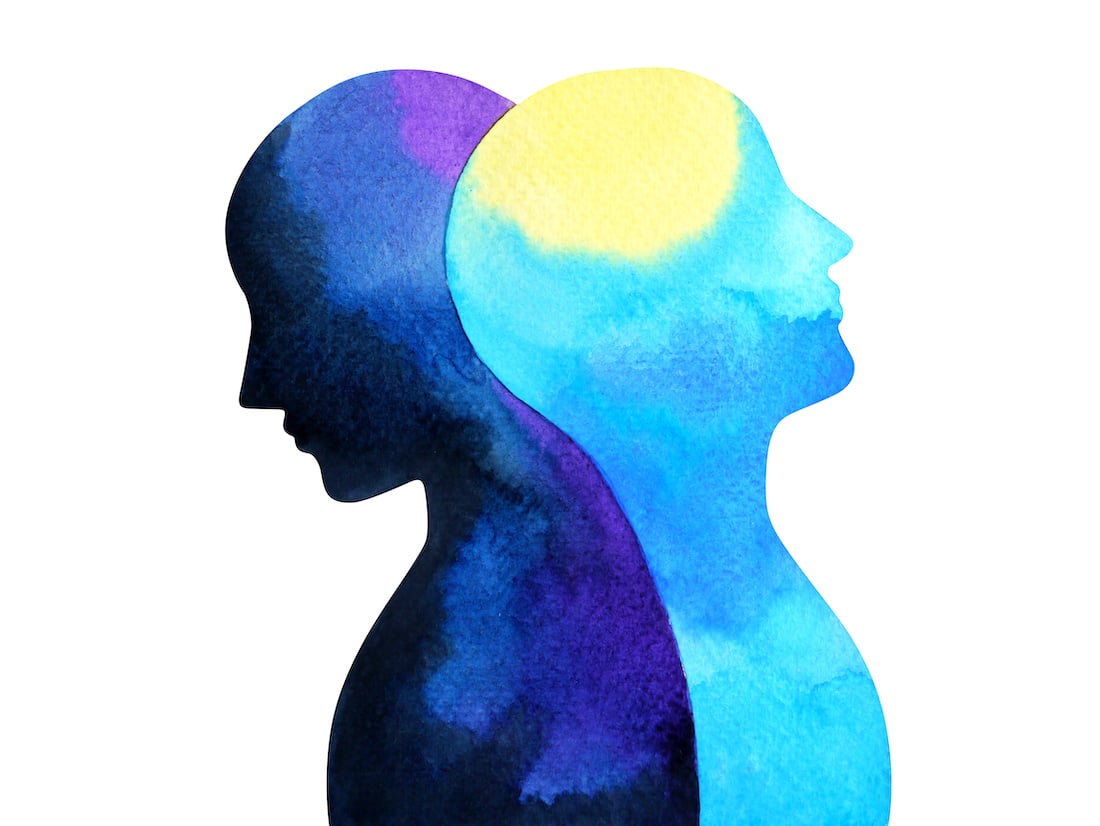Are you familiar with psychosis? An often misunderstood condition, psychosis can be a frightening experience for both those going through it and their loved ones. But what is psychosis? What causes it? How can you manage it, and what are some ways to practice self-care for psychosis?
What is Psychosis?
Psychosis is a collection of symptoms associated with the loss of touch with reality. People with psychosis experience disturbances in their thoughts and perceptions. They experience difficulty differentiating between what is real and what is not during a psychotic episode. Psychosis typically begins in young adulthood and is often a symptom of another mental health condition such as severe depression, anxiety, bipolar disorder, or schizophrenia.1
Tips for Dealing with Psychosis
Psychosis is complex because there is no one cause of the condition. It seems to result from an intricate combination of genetics, discrepancies in brain development, and the experience of stressors or trauma. Dealing with psychosis looks different for everyone, though these tips are a good place to start:
Seek Professional Help
Seeking professional help is the first and most crucial step in dealing with psychosis. A mental health professional can accurately diagnose the condition, providing effective treatment options. Medication and therapy are often essential components of managing psychosis.
Recognize Early Warning Signs
It is important that one learns to recognize the early warning signs of psychosis. These include changes in thought patterns or increased social withdrawal. When such signs appear, it is crucial to seek help promptly to prevent the escalation of symptoms.
Medication Management
Antipsychotic medications can help control the symptoms of psychosis. You should work closely with a specialized mental healthcare provider to find the right medication and dosage for your specific needs. Also, be sure to stay on top of taking your medication since a missed dose can lead to symptom relapse.
Therapy and Counseling
Therapies like cognitive behavioral therapy (CBT) and family therapy are often beneficial in addressing the underlying causes of psychosis and developing the skills necessary for coping with its symptoms.2 CBT, for example, helps individuals challenge and change distorted thoughts and beliefs, reducing the frequency and impact of psychotic delusions and hallucinations.
Create a Support System
Building a support network is crucial for individuals living with psychosis. Friends and family who understand the condition can provide emotional support, encouragement, and a safe space for open communication. Support groups can also offer a sense of community and shared experiences.
Self-Care for Psychosis
Practicing self-care for psychosis is essential for managing the condition. This includes maintaining a healthy lifestyle with regular exercise, a balanced diet, and adequate sleep.3 Also helpful is the reduction of stress through relaxation techniques like mindfulness meditation.
Monitor Symptoms
Tracking your symptoms in a journal is a helpful way to identify triggers that exacerbate psychosis. This information can be invaluable for your providers and will inform them of any need for adjustments to your treatment plan.
Encourage Independence
Individuals experiencing psychosis should be encouraged to establish and maintain independence as much as possible. While support is essential, fostering self-reliance can boost self-esteem and improve overall functioning.
Seeking Help for Psychosis
Recovery from psychosis is possible, and it’s essential to maintain a positive mindset. Understand there may be setbacks along the way, but, with determination and support, progress can be made. Finding a specialized mental healthcare program that understands the unique needs of people living with psychosis is also critical.
Pasadena Villa is a mental health treatment facility equipped to work with individuals who experience psychosis. We offer specially designed programs to work with adults who experience psychosis, bipolar disorder, post-traumatic stress disorder, and other mental health conditions. Call us at 407-215-2519 or submit an online contact form to learn more about our programs.
References
- National Institute of Mental Health. (2023). Understanding Psychosis.
- NHS. (2019). Treatment – Psychosis.
- The Journal of Nervous and Mental Disease. (2007). Coping With Psychosis: An Integrative Developmental Framework.



